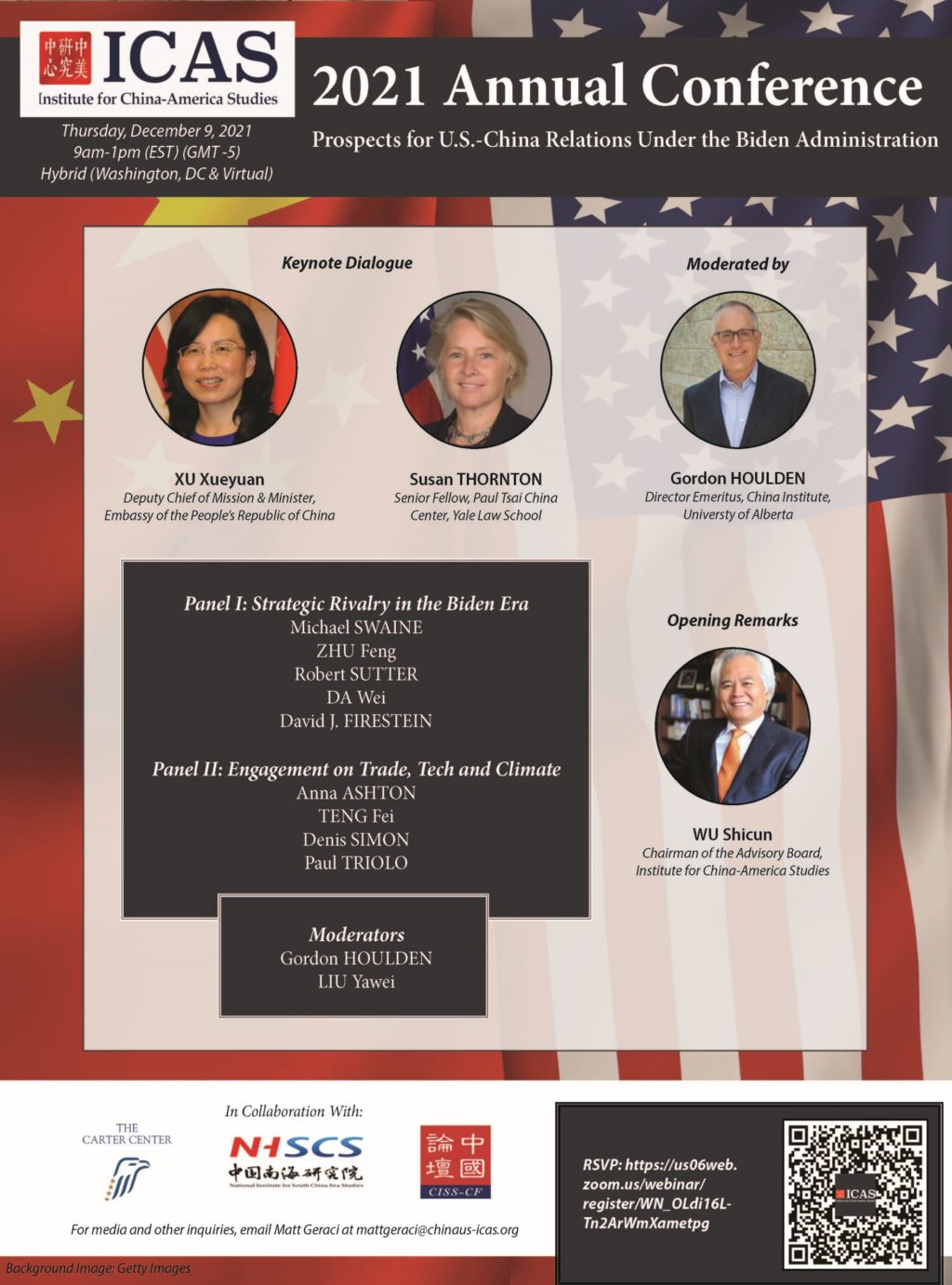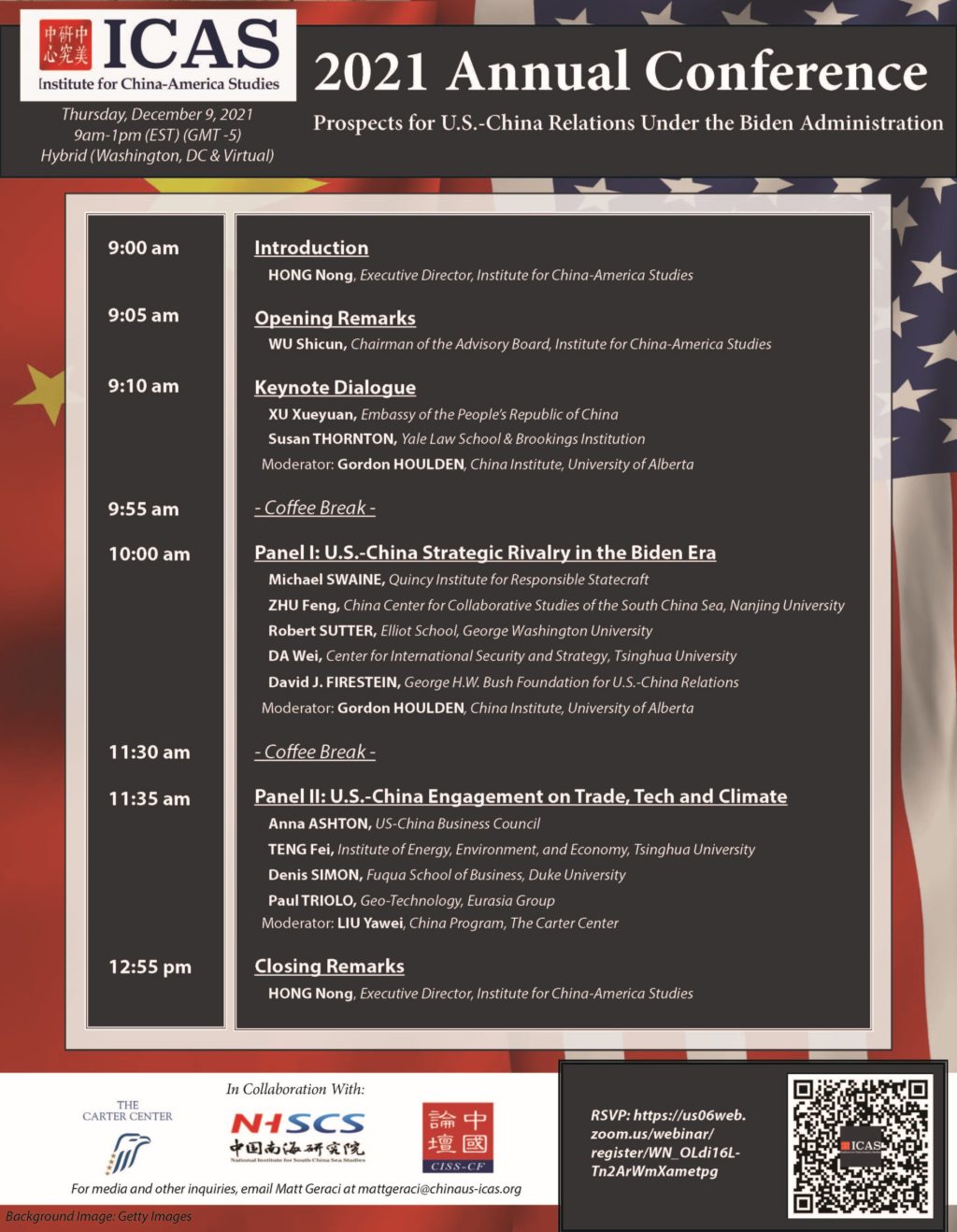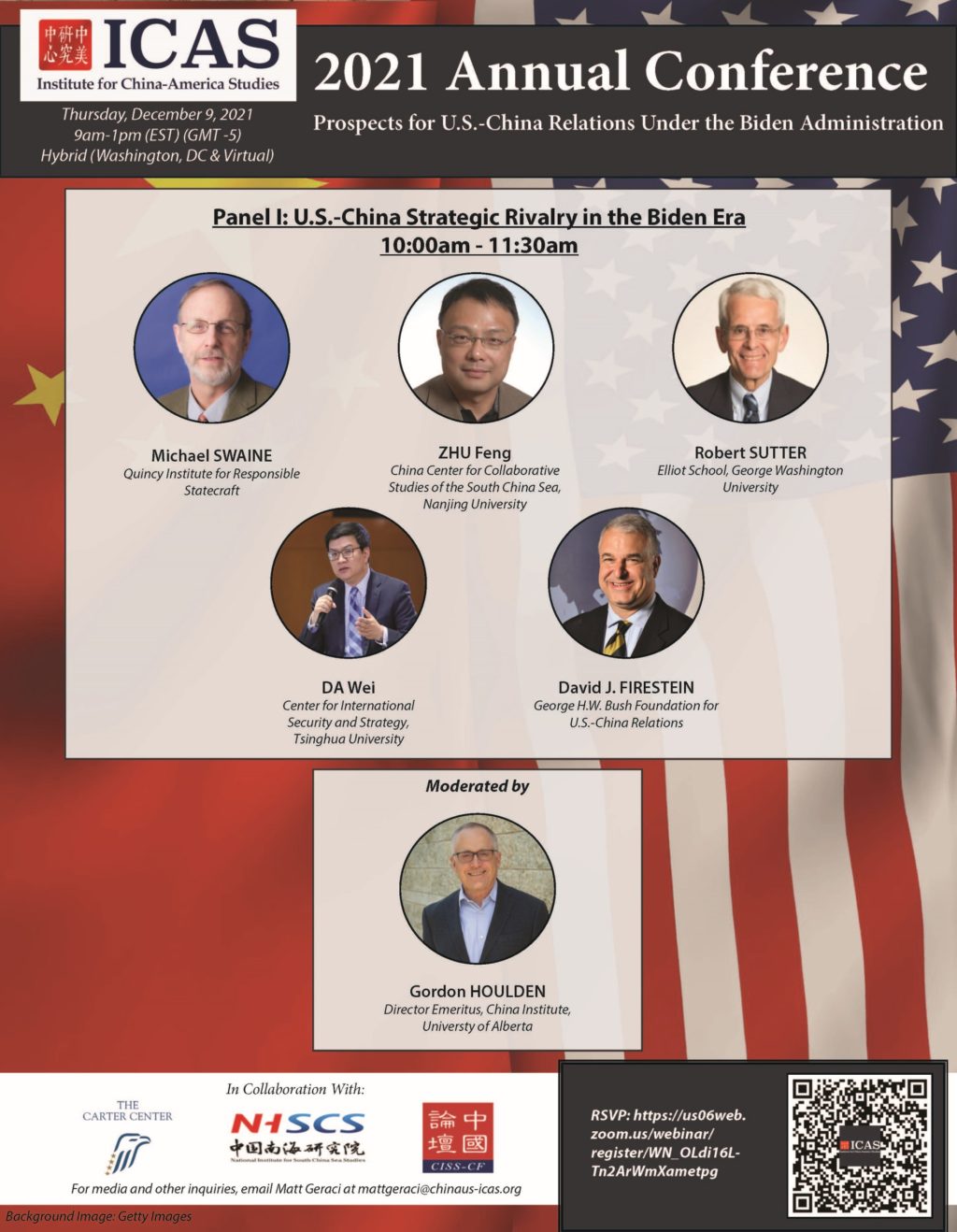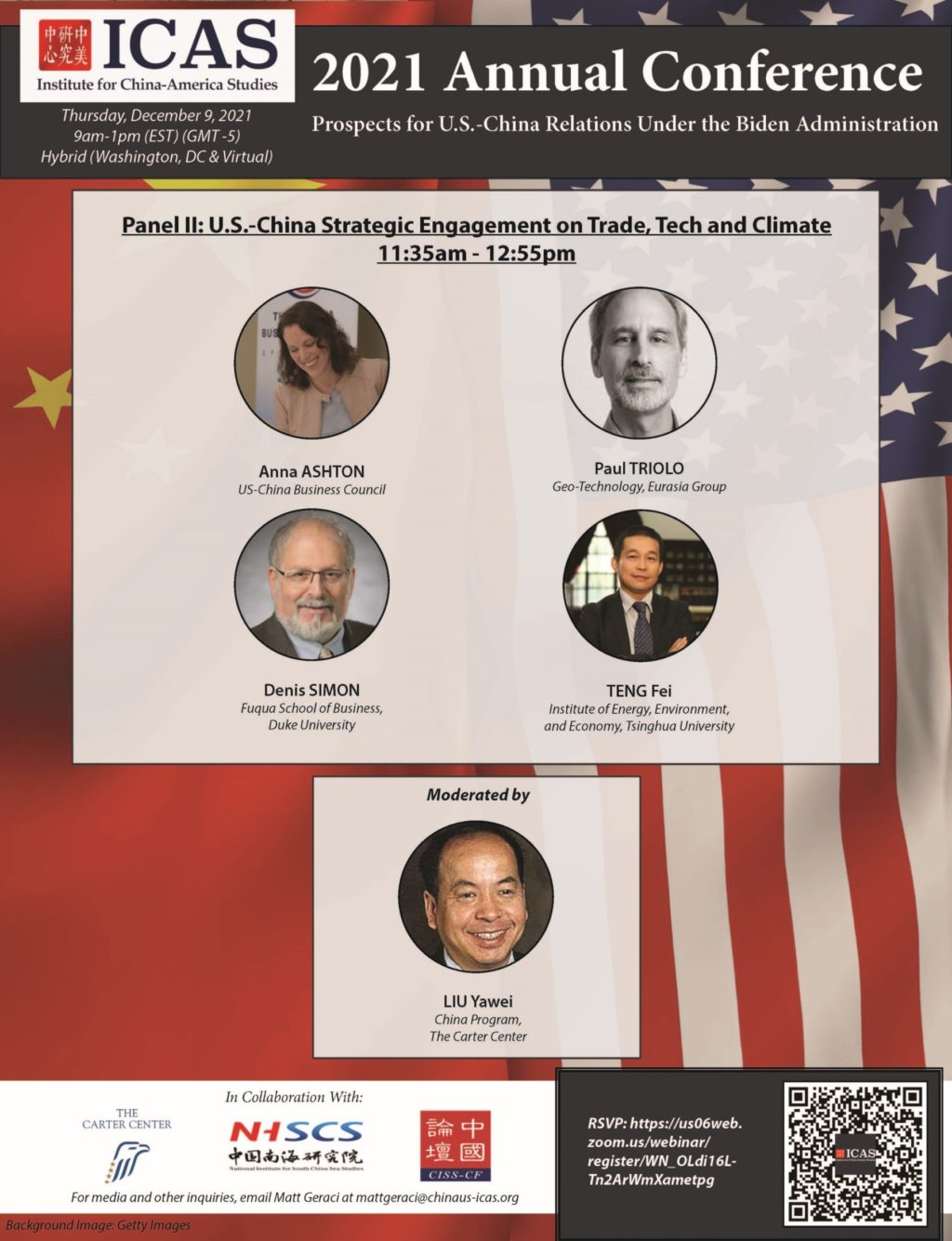Panel I: Outlook for U.S.-China Strategic Rivalry in the Biden Era
U.S.-China political relations hang in the balance. In its Interim National Strategic Guidance of March 2021, the Biden Administration followed in the vein of its predecessor by contending that the distribution of power across the world was rapidly changing, and that China in particular was becoming increasingly assertive. It was deemed to be America’s foremost competitor potentially capable of mounting a sustained challenged to the liberal international order. In the months thereafter however, the Biden administration has cautiously inched towards stabilizing bilateral ties. The Meng Wanzhou and ‘two Michaels’ detention saga has been resolved, the longstanding policy of strategic ambiguity on Taiwan reconfirmed, and the incendiary ‘genocide’ word more-or-less dropped from the administration’s diplomatic lexicon. Over the next few months nevertheless, the administration will be releasing its National Security Strategy, National Defense Strategy, and Nuclear Posture Review reports. Each is expected to take a firm line on China, and the AUKUS security partnership is an early harbinger of that firmness.
In the context of these fluid developments, what does 2022 hold in store for U.S.-China political relations under the Biden administration? What will the emerging ‘new normal’ in bilateral relations look like? Will its National Security Strategy and Indo-Pacific policy be just as hard-hitting as the Trump administration’s strategy document and policies were? Will military and maritime competition continue inexorably on a more-or-less zero-sum path? With an important Party Congress beckoning in Fall 2022, what are President Xi’s bilateral relationship-related priorities? Will the two sides close out the next year with the promise of greater stabilization and cooperation in ties? Or will 2022 end with an even sourer taste in the mouth of both parties as they jostle for geopolitical advantage at each twist and turn?
Panel II: Outlook for U.S.-China Engagement on Trade, Tech and Climate
The Biden administration’s engagement – or rather disengagement – on trade and technology policy with China shares much in common with the Trump administration’s approach. Tariffs continue to be prioritized and export controls implemented, albeit on a more nuanced basis. In a welcome break with the previous administration’s approach though, a positive framework to Build Back Better has also been set in motion. Given that economics, trade and investment had been the essential foundation on which four decades of U.S.-China ties rested – that is, until President Trump attempted to tear this foundation down, what should one expect on the bilateral trade, S&T, and investment front in 2022? For quite some time now, President Xi has signaled China’s will to embrace difficult structural reforms, including of its state-owned enterprises and industrial subsidies regime. Will China follow through with these difficult reforms in 2022, either at the behest of the Biden administration or to instill confidence in its CPTPP candidature?
Climate change cooperation had been a bright spot in bilateral relations under the Obama administration. Over this past year though, it too has fallen victim to the vicissitudes of overall U.S.-China ties. The Biden administration has tended to seek selective cooperation with Beijing on an a la carte basis, including on climate change, that is framed within a broader structural context ranging from coexistence to ‘extreme competition’ with China. The Xi regime, on the other hand, has preferred a more structured relationship, where bilateral cooperation including on climate change is preceded by the restoration of guardrails to overall China-U.S. political ties. Between these two approaches, cooperation on climate change that has seemingly fallen through the cracks. Can the two sides reverse this disappointing state of affairs, especially in light of the existential nature of the climate crisis? And a broader level, is it implausible to expect that the U.S. and China could once again restore vigorous S&T and people-to-people exchanges once the COVID-19 travel restrictions are lifted by both sides?





